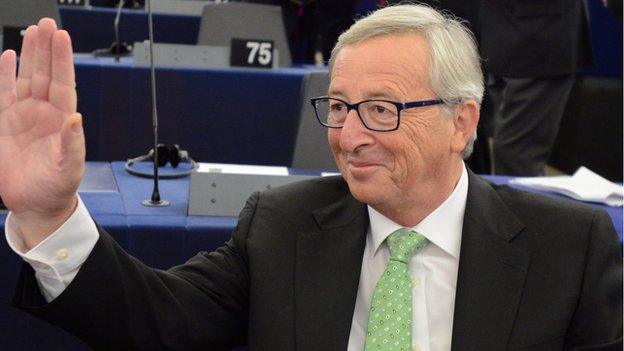EU Commissioner Timmermans promises to cut red tape
- Published
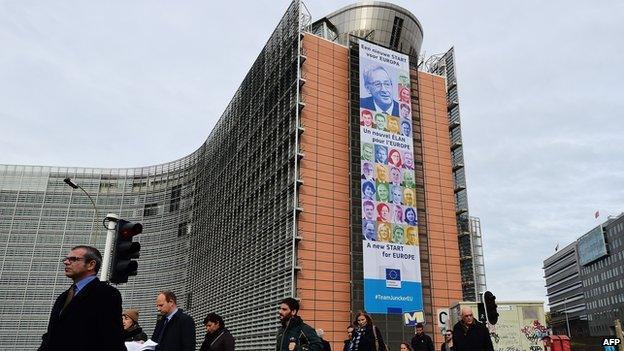
Critics accuse the Commission of "mission creep" because of the mass of EU legislation
A top Brussels official in charge of reducing the burden of EU regulations says he is determined to keep the EU focused on priority areas.
"What we need is sensible, realistic rules that do their job - no more, no less", said EU Commission First Vice-President Frans Timmermans.
He is known as Commission President Jean-Claude Juncker's "right-hand man".
Critics accuse the Commission of over-legislating, increasing business costs across the 28-nation bloc.
"Sometimes there's a tendency in Brussels to think 'I legislate therefore I am'. I want to change that, and focus on what Europe needs to do, not what would be nice to do", Mr Timmermans said.
He was speaking in London - and the UK government is among the most vociferous critics of EU bureaucracy.
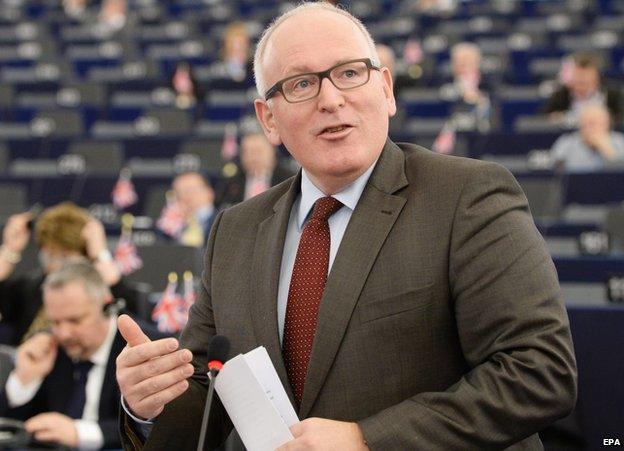
Mr Timmermans is a veteran of EU institutional business
Mr Timmermans, previously the Dutch Foreign Minister, said he was listening to the concerns of small and medium-sized enterprises (SMEs) about EU regulations.
"I want a Europe that works for the little guy ... the big boys and girls can look after themselves very nicely. I want SMEs to feel the difference - to say, hey this actually works."
The Commission drafts EU laws, which then require approval by the EU governments (the Council) and European Parliament to take effect. The Commission also enforces the EU treaties, acting against infringements.
In December Mr Juncker presented a work programme for 2015, external consisting of 23 new initiatives - about one-fifth the number put forward in some years by previous Commission heads.
The Commission withdrew 80 existing proposals, signalling a new drive to curb red tape.
The priorities for this year include:
Incentives to generate at least €315bn (£229bn; $349bn) of public and private investment in Europe over the next three years
EU co-funding to help create a European "energy union", including a Connecting Europe Facility (CEF), external
Development of a digital single market, including updated rules on copyright and online purchases
Mr Juncker has warned that EU institutions are in a "last chance saloon" to restore voters' trust in the EU, amid widespread Euro-scepticism.
- Published26 July 2013
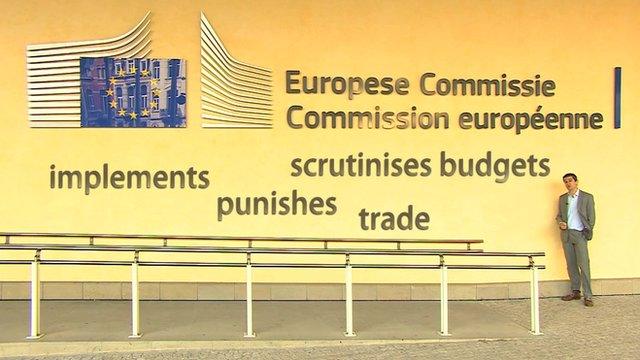
- Published26 November 2014
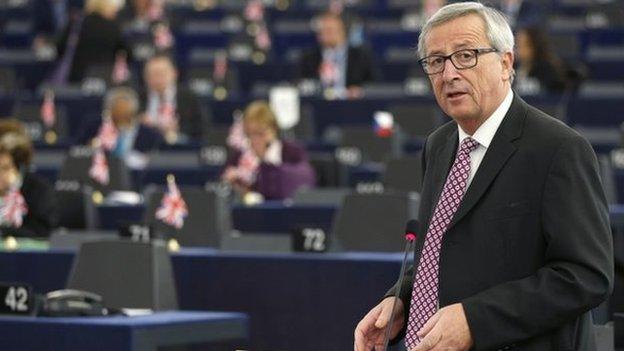
- Published22 October 2014
